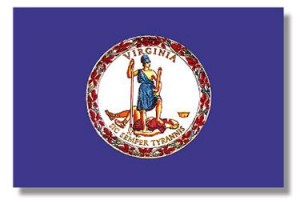
Recent False Claims Act Developments
As regular readers know, qui tam provisions — which allow a private citizen to bring suit in their own name as well as in the name of the government — are an ancient tradition of the English common law and are, in fact, older than the United States. Although the qui tam provisions of the false claims act are an ancient concept, the colonial governments of the New World established qui tam statutes on an unprecedented scale, in part because the large territories and sparse populations under their control made effective law enforcement difficult to say the least.
Despite this historical — and Constitutional — pedigree, from time to time defendants have attempted to raise various constitutional arguments against the qui tam provisions of the false claims act. With a single recent exception in a single U.S. District Court, those arguments have universally fallen flat.
Today’s post is part one of a two-part post, and outlines a brief history of qui tam/false claims act litigation; part two of this series we will take a look at the recent opinion and what is likely to happen next.
Historical Background to the Qui Tam Provisions of the False Claims Act
Following the American Revolution and the adoption of the U.S. Constitution, the First Congress enacted numerous laws with qui tam provisions. See Bowsher v. Synar, 478 U.S. 714, 723-24 (1986) (acts of the First Congress “provide[] contemporaneous and weighty evidence of the Constitution’s meaning since many of the Members of the First Congress had taken part in framing that instrument”). In U.S. ex rel. Marcus, the Supreme Court held that “[s]tatutes providing for actions by a common informer, who himself had no interest whatever in the controversy other than that given by statute, have been in existence for hundreds of years in England, and in this country ever since the foundation of our government.” United States ex rel. Marcus v. Hess, 317 U.S. 537, 541 n.4 (1943).
Virginia, like most of the other original colonies, has had many laws with qui tam provisions during her long history. The first published qui tam opinion in Virginia legal history seems to have occurred under the Colonial Courts, in the 1730 case of Churchill v. Blackburn. Indeed, before the year 1900 there were at least 34 qui tam cases in decided in Virginia that resulted in published opinions, including Commonwealth ex rel Walker v. Southern Express Company, 92 Va. 59, 22 S.E. 809 (1895).
In Southern Express, the relator – unceremoniously referred to therein as the “informer”— brought suit to enforce a penalty under sections 1215 and 1220 of the Virginia Code of 1887, which set a rate for rail carriers and prohibited rail carriers from charging fees in excess of a certain amount. Section 1215 set forth the allowable fee rail carriers could charge, and section 1220 allowed any person who found a carrier charging more than the set amount to come forward, prosecute the case, and receive half of the fine. At that time, the fine was a steep $100. In today’s dollars, after inflation, that fine would come to just under $4,000.
A Look at the Recent Developments
As I said in the introduction, despite this long and historical pedigree, from time-to-time defendants have raised various arguments against the constitutionality of the false claims act and its qui tam provisions. With one very recent exception in a single district court, these arguments have universally met with a signal lack of success.
Constitutional attacks on the law are primarily based on three theories. The first argument was that relators lacked “standing” under Article III of the Constitution because they sued for an injury suffered by the United States and not for an injury they suffered themselves. Second, some defendants argued that the qui tam provisions violate Article II of the Constitution because they infringed on the Executive Branch’s authority to “take care that the laws be faithfully executed.” Third, some defendants have argued that the FCA is unconstitutional because Article II gives the Executive – and not the Legislative – power to appoint officers of the United States.
For decades every court that considered these challenges upheld the constitutionality of the false claims act’s qui tam provision. See United States ex rel. Stone v. Rockwell Int’l Corp., 282 F.3d 787 (10th Cir. 2002); Riley v. St. Luke’s Episcopal Hosp., 252 F.3d 749 (5th Cir. 2001) (en banc); United States ex rel. Taxpayers Against Fraud v. Gen. Elec. Co., 41 F.3d 1032 (6th Cir. 1994); United States ex rel. Kelly v. Boeing Co., 9 F.3d 743 (9th Cir. 1993); see also United States ex rel. Kreindler & Kreindler v. United Techs. Corp., 985 F.2d 1148 (2d Cir. 1993). These courts all concluded that the Act does not offend the separation of powers principle because the Executive Branch retains sufficient control over qui tam litigation and because qui tam relators, who pursue only one individual case, are not officers of the United States and do not exercise government power.
The Polansky Opinion Kicks Off a New Round of Challenges
The June 2023 Supreme Court decision in U.S. ex rel. Polansky v. Executive Health Resources, Inc. 599 U.S. 419,143 S.Ct. 1720 216 L.Ed.2d 370 (2023) kicked off the most recent battle. Stay tuned for Part Two of this post!